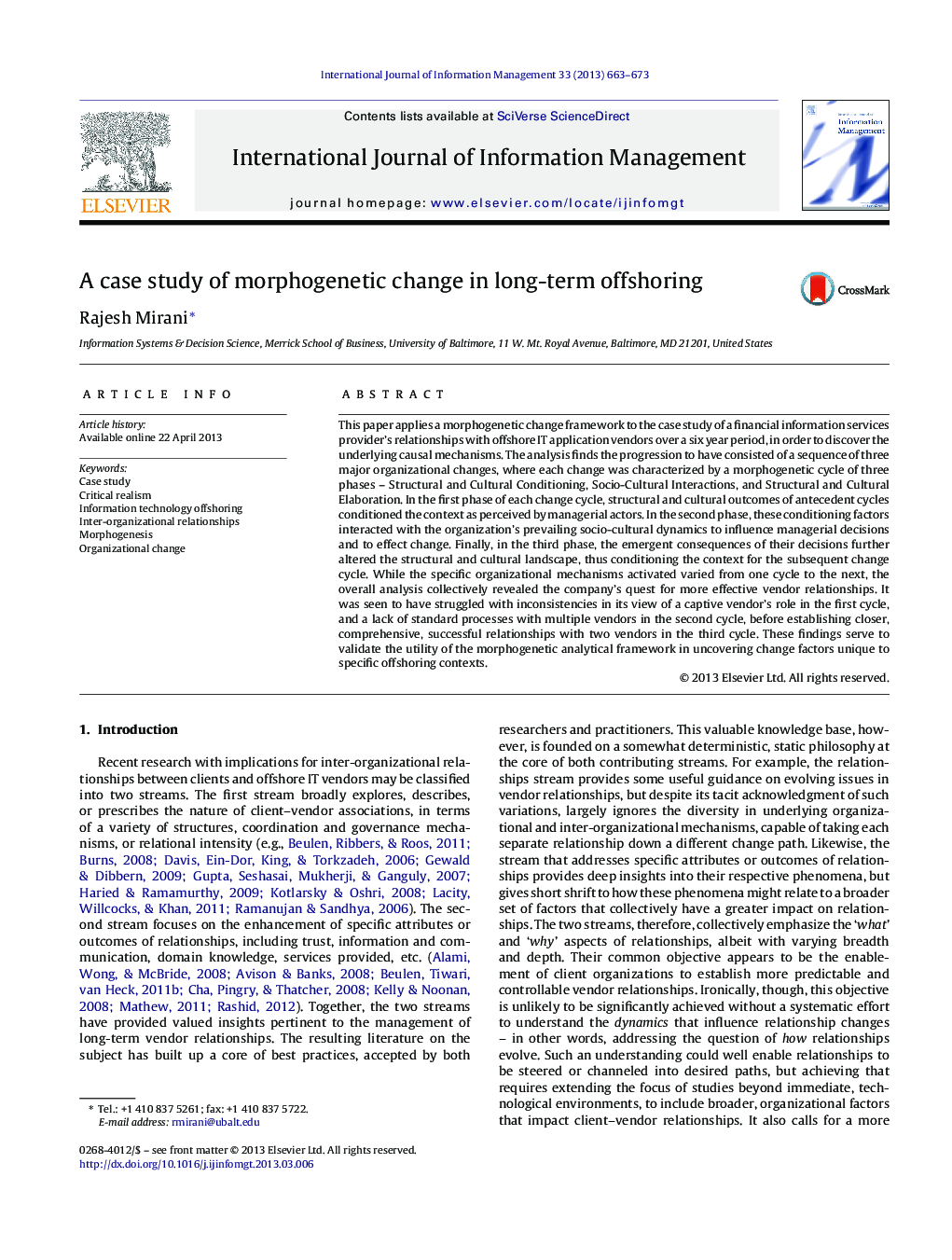| Article ID | Journal | Published Year | Pages | File Type |
|---|---|---|---|---|
| 1025686 | International Journal of Information Management | 2013 | 11 Pages |
•A critical-realist study explored a client company's relationships with offshore application vendors over six years.•The relationship progression was found to be characterized by distinct morphogenetic change cycles.•Analysis of these cycles showed relationship effectiveness to be hindered by perceptual factors or cultural mechanisms.•A consultant's intervention helped displace the client's dysfunctional relationship perceptions with an enabling mindset.•The findings show the morphogenetic framework to be very useful in uncovering success factors for offshoring relationships.
This paper applies a morphogenetic change framework to the case study of a financial information services provider's relationships with offshore IT application vendors over a six year period, in order to discover the underlying causal mechanisms. The analysis finds the progression to have consisted of a sequence of three major organizational changes, where each change was characterized by a morphogenetic cycle of three phases – Structural and Cultural Conditioning, Socio-Cultural Interactions, and Structural and Cultural Elaboration. In the first phase of each change cycle, structural and cultural outcomes of antecedent cycles conditioned the context as perceived by managerial actors. In the second phase, these conditioning factors interacted with the organization's prevailing socio-cultural dynamics to influence managerial decisions and to effect change. Finally, in the third phase, the emergent consequences of their decisions further altered the structural and cultural landscape, thus conditioning the context for the subsequent change cycle. While the specific organizational mechanisms activated varied from one cycle to the next, the overall analysis collectively revealed the company's quest for more effective vendor relationships. It was seen to have struggled with inconsistencies in its view of a captive vendor's role in the first cycle, and a lack of standard processes with multiple vendors in the second cycle, before establishing closer, comprehensive, successful relationships with two vendors in the third cycle. These findings serve to validate the utility of the morphogenetic analytical framework in uncovering change factors unique to specific offshoring contexts.
